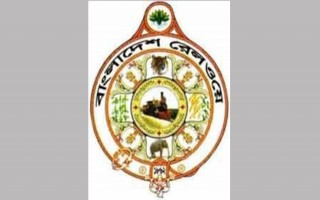Railway mired in corruption: ACC
The Anti-Corruption Commission has found high prevalence of corruption in the Bangladesh Railway as employees at almost every stage of the important public transport system are allegedly involved in irregularities and malpractices.
Incidents of corruption and various irregularities take place in the processes of procurements, ticket selling, line management, tender and recruitment practices and railway’s land management, an ACC team has found.
During an investigation for nearly one year, the team has detected 10 ways or sources of corruption and irregularities in the department while it has made 15 recommendations for the department to check such practices.
The ACC said that its officials interviewed some former and current railway officials as well as a few external people involved in railway’s activities while they analysed relevant rules and regulations during the investigation.
On Tuesday, ACC commissioner M Mozammel Haque Khan handed over the investigation report to railway minister M Nurul Islam Sujan at the Rail Bhaban in Dhaka to take necessary measures.
The ACC inquiry report said that corruption took place in the process of leasing out railway land and in transfers of employees between the railway’s East and West zones.
The government has lost a vast amount of revenue as a good number of railway water bodies were given in lease in violation of the stipulated rules.
There was an allegation that a section of railway employees were involved in the practice of allowing people to build structures on railway land for their personal benefits, the report said.
Several hundred acres of railway land were occupied by outsiders due to lack of enough surveillance while officials and employees of the department themselves illegally built houses and other structures on the land of railway and used them.
The ACC also found corruption and irregularities in the procurements of wagons, coaches, locomotives and diesel electric multiple units.
Corruption and irregularities were detected in the process of rehabilitation and modernisation of the railway signalling system in different sections.
Construction of double-line, single-line and dual-gauge rail tracks was, too, found to be taking place amid corruption and irregularities, the findings showed, adding that the land acquisition for the railway was no exception.
The government is losing large amounts of money as irregularities engulfed the processes of auctioning various machines and tools from railway’s divisional factories in Saidpur and Nilphamari, and from Paksey, Lalmonirhat under the railway’s West Zone, and from Dhaka and Pahartali under the East Zone, the ACC said.
The remaining railway workshops, on the other hand, were lying almost non-functional as imports were preferred, revealed the investigation, adding that there was a public perception that the government suffered tremendous financial losses as the railway’s sleeper factories remained non-functional.
Bangladesh Railway employees were involved in the ‘black marketing’ of tickets and groups of middlemen created artificial crises of tickets by purchasing blocks of inter-city trains tickets, the report said.
The commission also found irregularities in the leasing of passenger trains used as commuter trains.
The ACC advised the authorities concerned to involve the Institute of Business Administration of Dhaka University, the Bangladesh University of Engineering and Technology and the Bangladesh Institute of Management in the recruitment processes of the department.
It also recommended that the Bangladesh Railway should make sure that all its tender processes were carried out through open e-tendering and the processes should involve the BUET, the Rajshahi University of Engineering and Technology, the Chittagong University of Engineering and Technology, the Khulna University of Engineering and Technology, and the Dhaka University of Engineering and Technology.
The commission asked the ministry to prepare a database of its total land across the country, showing under the heads as used, unused and occupied.
The report also recommended making the railway factories and workshops functional and increasing their capacities to avoid import of coaches.
There should be transparency in the procurement processes and the train tickets selling should be digitised, the report advised further.
After submitting the report to the railway minister, ACC commissioner Mozammel told reporters that the road sector, in addition to the railway, should also be put under ACC surveillance to check corruption.
Railway minister Nurul Islam said that he welcomed the ACC effort and the report would be reviewed.
He also remarked that there was no scope to say that there was no corruption in his ministry as corruption became all-pervasive.
He would try to stop corruption in his ministry though there was a shortage of manpower to ensure enough surveillance, he added.
Transparency International Bangladesh executive director Iftekharuzzaman told New Age that the ACC should take legal action against the people involved in the corruption processes alongside making suggestions for the authorities.
He also emphasised that the commission should follow the matter up on a long-, medium- and short-time basis to see whether the authorities took actions over the report or not.
News Courtesy: www.newagebd.net











